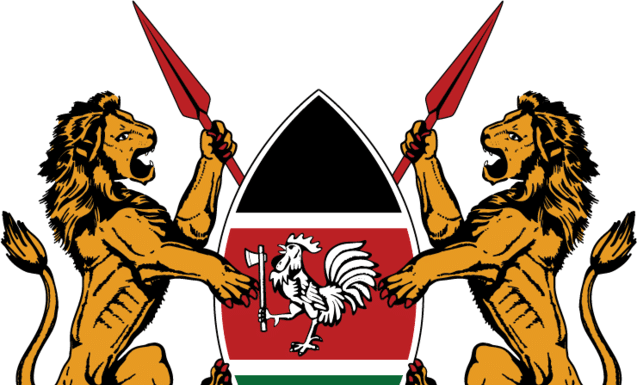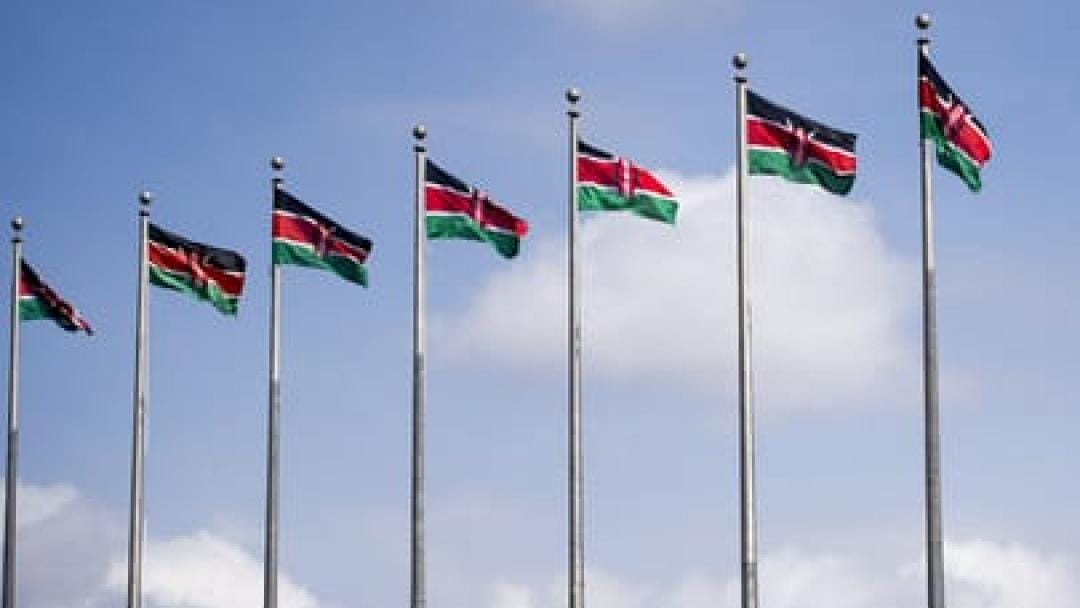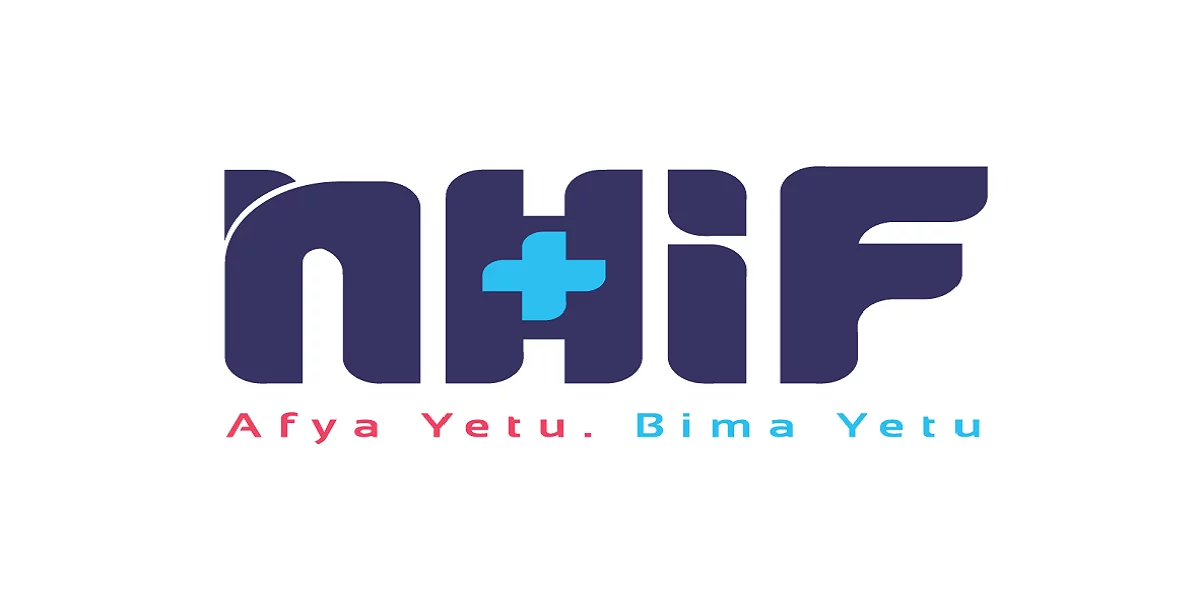Updated on July 9, 2024 – Added the importance of government agencies in Kenya and 1o more government agencies in Kenya.
Walk with me as we explore the list of Government Agencies in Kenya.
A government agency is an organisation that helps in the administration of specific functions of a government. There is a list of government agencies in Kenya that have been tasked to exercise the legislative powers of the government.
In Kenya, we have over 50 government agencies that are in operation. Some of the agencies include The Kenya Airports Authority, Attorney General of Kenyan Central Bank, Retirement Benefits Authority, Capital Markets Authority and many others.
Government agencies are characterised into two categories, for example:
1. Law enforcement agencies
This comprises of agencies that are mandated to maintaining public order and safety, enforcing the law, and preventing, detecting, and investigating criminal activities. They include the Kenya police, administrative police, special branch and the General service unit.
2. Regulatory agencies
Regulatory agencies implement and enforce laws enacted by legislatures. They enforce laws by the regulation-making process. These agencies affect the daily operations of all businesses. They include The Kenya Bureau of Standards (KEBS), insurance regulatory authority and more.
Importance of Government Agencies in Kenya
Government agencies play a crucial role in the administration and governance of Kenya. They are instrumental in implementing policies, delivering public services, and ensuring the smooth functioning of the country’s socio-economic framework. Here are key reasons why government agencies are vital in Kenya:
Public Service Delivery
Government agencies are at the forefront of delivering essential public services to the citizens. These services include healthcare, education, security, and infrastructure development. For instance, the National Hospital Insurance Fund (NHIF) provides healthcare insurance, ensuring that Kenyans have access to medical services. The Kenya National Highways Authority (KeNHA) is responsible for developing and maintaining highways, facilitating smooth transportation across the country.
Regulation and Oversight
Agencies like the Kenya Revenue Authority (KRA) and the Kenya Bureau of Standards (KEBS) regulate various sectors to ensure compliance with laws and standards. KRA is responsible for tax collection, which is crucial for funding government operations and development projects. KEBS ensures that products and services meet quality standards, protecting consumers from substandard goods.
Economic Development
Economic development is significantly boosted by agencies such as the Kenya Investment Authority (KenInvest) and the Central Bank of Kenya (CBK). KenInvest promotes and facilitates investment in Kenya, creating job opportunities and fostering economic growth. The CBK, on the other hand, regulates monetary policies and ensures financial stability, which is essential for a healthy economy.
Security and Law Enforcement
The National Police Service (NPS), the Directorate of Criminal Investigations (DCI), and the Kenya Defense Forces (KDF) are vital in maintaining law and order, investigating crimes, and protecting the country from external threats. These agencies ensure that the rule of law is upheld and that citizens live in a secure environment.
Social Welfare
Agencies like the National Social Security Fund (NSSF) and the Ministry of Health (MoH) play a significant role in social welfare. The NSSF provides social security protection to workers in the formal and informal sectors, ensuring they have financial security in retirement. The MoH oversees public health policies and programs, working to improve the overall health standards of the population.
Education and Research
The Ministry of Education, the Kenya National Examinations Council (KNEC), and the Kenya Institute of Curriculum Development (KICD) are pivotal in shaping the education system. They develop curricula, administer examinations, and formulate policies that ensure quality education for all Kenyan students. This fosters a knowledgeable and skilled workforce, driving national development.
Infrastructure Development
Infrastructure development is critical for economic progress, and agencies like the Kenya Ports Authority (KPA) and the Kenya Civil Aviation Authority (KCAA) ensure that the country’s transport and logistics sectors are efficient. KPA manages port operations, facilitating international trade, while KCAA regulates civil aviation, ensuring safe and reliable air travel.
Environmental Protection
Agencies such as the National Environment Management Authority (NEMA) are dedicated to protecting the environment. NEMA enforces environmental regulations, ensuring sustainable development and conservation of natural resources. This is vital for the country’s long-term ecological balance and the well-being of its citizens.
List of Government Agencies in Kenya
Here is a list of some of the well-known Government agencies in Kenya.
1. Kenya Revenue Authority (KRA)
The authority is charged with the responsibility of collecting revenue on behalf of the Government of Kenya. It is also tasked to assess, collect and account for all revenues per the written laws and the specified provisions of the written laws.
To advise on matters relating to the administration of, and collection of revenue under the written laws or the specified provisions of the written laws.
The Kenya Revenue Authority was established by an Act of Parliament, Chapter 469 of the laws of Kenya effective on 1st July 1995. Its role is to collect revenue on behalf of the government of Kenya.
2. Kenya Airports Authority (KAA)
KAA is the owner and operator of nine civilian airports and airstrips in Kenya. The agency was established by an act of Parliament in 1992, by the ruling Kenya African National Union government.
KAA provides for the powers and functions of the authority. Its head office is on the property of Jomo Kenyatta International Airport in Embakasi.
3. Export Promotion Council
the EPC has a primary objective of addressing bottlenecks facing exporters and producers of export goods and services to increase the performance level of the export sector.
It also provides a forum for dialogue between the exporting fraternity and relevant public and private sector institutions and organisations through Sectoral Panels.
EPC serves as Kenya’s premier institution in the development and promotion of export trade in the country.
In pursuit of its mandate, the EPC primary objective is to address bottlenecks facing exporters and producers of export goods and services to increase the performance level of the export sector.
It also provides a forum for dialogue between the exporting fraternity and relevant public and private sector institutions and organisations through Sectoral Panels.
4. Kenya National Chamber of Commerce Industry (KNCCI)
The Kenya National Chamber of Commerce and Industry (KNCCI), is a NON-PROFIT, autonomous, private sector institution and membership-based organisation.
Its essential functions include to Promote, co-ordinate and protect commercial and industrial interest to its members and Kenya in general.
Promote trade within and outside of Kenya. Establish and organise finance trade and industrial exhibitions, which it displays either on its own or in participation with other persons or organisations.
Foster social unity and promote the welfare of the commercial and industrial community. And also promote, support or oppose legislation and ineffective bureaucratic measures that may be put in place by the government for the interest of the members.
5. Export Processing Zones Authority (EPZA)
The Export Processing Zones Authority (EPZA) is a State Corporation, under the Ministry of Industry, Trade and Cooperatives established in 1990, by the EPZ Act CAP 517, Laws of Kenya.
EPA’s mandate is to promote and facilitate export-oriented investments and to develop an enabling environment for such investments.
Under the EPZ program, the organisation offers a range of attractive fiscal, physical and procedural incentives to ensure low-cost operations, fast set up and smooth operations for export-oriented businesses.
6. The Capital Markets Authority of Kenya
Also, the Capital Markets Authority (CMA), is an independent government financial regulatory agency.
It is responsible for supervising, licensing and monitoring the activities of market intermediaries, including the stock exchange, and the central depository and settlement system and all the other persons licensed under the Capital Markets Act of Kenya.
The CMA plays a critical role in the economy by facilitating mobilisation and allocation of capital resources to finance long term productive investments.
7. The Retirement Benefits Authority (RBA)
is Kenya’s regulatory body under the National Treasury. The agency performs such functions as regulating retirement benefits for retiring employees of the government of Kenya.
The authority is mandated to regulate and supervise the establishment and management of retirement benefits schemes. Protect the interests of members and sponsors of the retirement benefits sector.
It also Promotes the development of the retirement benefits sector. It advises the Cabinet Secretary and the National Treasury on the national policy concerning retirement benefits industry.
8. The Communications Authority of Kenya (CA)
Is the regulatory body for the communications sector in Kenya. Established in 1999 by the Kenya Information and Communications Act, 1998.
The authority is responsible for facilitating the development of the Information and Communications sectors including; broadcasting, multimedia, telecommunications, electronic commerce, postal and courier services.
9. The Insurance Regulatory Authority
The Insurance Regulatory Authority is a statutory government agency. Its role is to regulate, supervise and develop the insurance industry.
This also ensures compliance by insurance/reinsurance companies, protects consumers and promotes a high degree of security for policyholders.
It is also responsible for overseeing operations of the authority and ensuring that they are consistent with provisions of the Insurance Act.
10. The Medical Practitioners and Dentists Board
It is the regulatory body for the practice of medicine and dentistry in Kenya.
The Mandate of the Board is to regulate the training, practice and licensing of medicine & dentistry and healthcare institutions that include private & mission hospitals. As well as medical, dental centres & clinics, nursing and maternity homes and standalone funeral homes.
It also ensures the provision of quality and ethical health care by offering appropriate regulation of training, including registration, licensing, inspections and professional practice.
11. National Transport and Safety Authority (NTSA)
The National Transport and Safety Authority (NTSA) is responsible for ensuring road safety and regulating the transport sector. NTSA oversees vehicle registration, driver licensing, and the enforcement of traffic rules. It also plays a critical role in road safety campaigns and accident investigations, aiming to reduce road accidents and fatalities.
12. Kenya Ports Authority (KPA)
Kenya Ports Authority (KPA) manages and operates the country’s seaports. KPA is responsible for ensuring efficient port operations, which are crucial for international trade. The authority handles cargo logistics, shipping services, and port infrastructure development, playing a significant role in the country’s economic growth.
13. Kenya Wildlife Service (KWS)
Kenya Wildlife Service (KWS) is tasked with the conservation and management of Kenya’s wildlife resources. KWS protects endangered species, manages national parks and reserves, and promotes wildlife tourism. The agency also engages in anti-poaching efforts and community outreach programs to foster sustainable wildlife conservation.
14. National Hospital Insurance Fund (NHIF)
The National Hospital Insurance Fund (NHIF) provides health insurance coverage to Kenyans. NHIF ensures that members have access to affordable healthcare services. The fund covers various medical expenses, including inpatient and outpatient services, maternity care, and chronic disease management, thereby enhancing healthcare access and financial protection for its members.
15. Kenya Urban Roads Authority (KURA)
Kenya Urban Roads Authority (KURA) is responsible for the development, maintenance, and management of urban road networks. KURA’s mandate includes the construction and rehabilitation of roads within urban areas to improve transportation infrastructure and ease traffic congestion, contributing to urban development and economic activity.
16. Kenya Rural Roads Authority (KeRRA)
Kenya Rural Roads Authority (KeRRA) focuses on the development and maintenance of rural road networks. KeRRA aims to improve connectivity in rural areas, facilitating access to markets, schools, and healthcare facilities. Enhanced rural infrastructure supports agricultural productivity and rural economic development.
17. Water Resources Authority (WRA)
Water Resources Authority (WRA) is tasked with regulating and managing water resources in Kenya. WRA ensures sustainable water use, monitors water quality, and oversees the implementation of water management policies. The agency also works on water conservation projects and provides guidance on water resource management to ensure availability for future generations.
18. Kenya Electricity Generating Company (KenGen)
Kenya Electricity Generating Company (KenGen) is the leading electric power generation company in Kenya. KenGen produces electricity from various sources, including hydro, geothermal, wind, and thermal energy. The company plays a crucial role in meeting the country’s energy needs and supporting economic growth through reliable power supply.
19. Kenya Power and Lighting Company (KPLC)
Kenya Power and Lighting Company (KPLC) is responsible for the transmission, distribution, and retail of electricity in Kenya. KPLC ensures that electricity is reliably delivered to homes, businesses, and industries across the country. The company is also involved in expanding the national grid and promoting energy efficiency.
20. Higher Education Loans Board (HELB)
The Higher Education Loans Board (HELB) provides financial assistance to Kenyan students pursuing higher education. HELB offers loans, bursaries, and scholarships to help students cover tuition fees and other educational expenses. The board’s support is essential in promoting access to higher education and developing skilled human capital.
Role of Government Agencies in Kenya
- Government agencies play a crucial role in aiding the transition toward more efficient, less damaging economies, industries and citizens of Kenya.
- Create open, competitive, and rightly framed markets. That would include pricing of goods and services, dismantling subsidies, and taxing waste and pollution.
- Figure out ways that protect public interests and regulates industries.
- Implementing pollution control regulations and ensure that businesses meet the legal requirements.
- Plan, monitor, regulate, modify, improve and communicate the policy to stakeholders, regarding all business, private and public operations in Kenya.
Government agencies in Kenya Conclusion
The main task of these agencies is usually of policy implementation, such as service delivery, regulation, or exercising different kinds of public authority.
They are headed by civil servants appointed by the government or the minister in charge. In Kenya, activities of the agencies also remain with the cabinet.
Additionally, government agencies, for instance, the agency that permits trade regulations, the minimum wage, and the requirements for permits or licenses have effects on business. Businesses might spend a lot of money and time to comply with regulations that ultimately prove to be ineffective and unnecessary.




